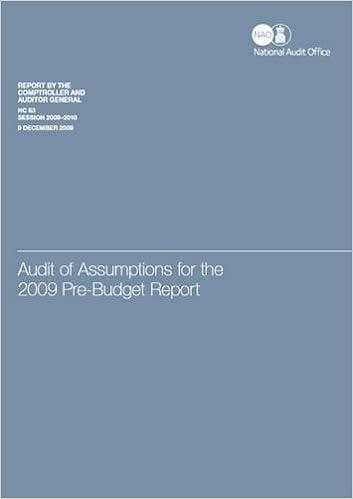Question
hi! I'm just stuck on how to go about this... The fact that generally accepted accounting principles allow companies flexibility in choosing between certain allocation
hi! I'm just stuck on how to go about this...
The fact that generally accepted accounting principles allow companies flexibility in choosing between certain allocation methods can make it difficult for a financial analyst to compare periodic performance from firm to firm.
Suppose you were a financial analyst trying to compare the performance of two companies. Company A uses the double-declining-balance depreciation method. Company B uses the straight-line method. You have the following information taken from the 12/31/2024 year-end financial statements for Company B:
| Income Statement | ||
| Depreciation expense | $ 13,000 | |
|---|---|---|
| Balance Sheet | |
| Assets: | |
|---|---|
| Plant and equipment, at cost | $ 260,000 |
| Less: Accumulated depreciation | (52,000) |
| Net | $ 208,000 |
You also determine that all of the assets constituting the plant and equipment of Company B were acquired at the same time, and that all of the $260,000 represents depreciable assets. Also, all of the depreciable assets have the same useful life and residual values are zero.
Required:
1. In order to compare performance with Company A, estimate what B's depreciation expense would have been for 2024 if the double-declining-balance depreciation method had been used by Company B since acquisition of the depreciable assets.
2. If Company B decided to switch depreciation methods in 2024 from the straight line to the double-declining-balance method, prepare the 2024 journal entry to record depreciation for the year, assuming no journal entry for depreciation in 2024 has yet been recorded.
Step by Step Solution
There are 3 Steps involved in it
Step: 1

Get Instant Access to Expert-Tailored Solutions
See step-by-step solutions with expert insights and AI powered tools for academic success
Step: 2

Step: 3

Ace Your Homework with AI
Get the answers you need in no time with our AI-driven, step-by-step assistance
Get Started


